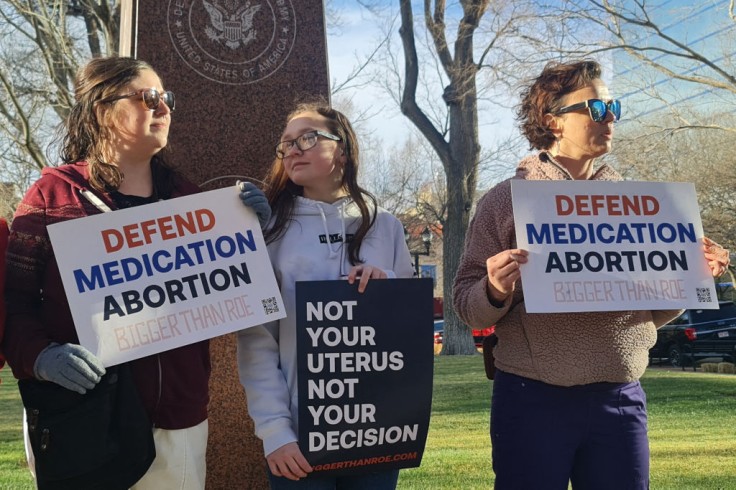
In a pivotal move, the Texas Supreme Court on Friday agreed to pause a lower court ruling that would have allowed a pregnant woman, Kate Cox, to obtain an abortion for her fetus, diagnosed with trisomy 18, a rare chromosomal disorder likely to result in stillbirth or the baby's death shortly after birth.
The ruling "administratively stays" the lower court's order, effectively putting a temporary halt to the decision that granted Cox permission to proceed with the abortion. However, this decision is not the final say on the merits of the case.
Texas Supreme Court Sparks Legal Battle
Cox, a 31-year-old woman approximately 20 weeks pregnant, received the devastating news about her developing fetus last month.
Texas law imposes stringent restrictions on abortions, permitting them only in limited circumstances. In light of the severity of Cox's situation, lawyers representing her successfully obtained an emergency order allowing her to proceed with the abortion.
State District Judge Maya Guerra Gamble, acknowledging the risks to Cox's future fertility, granted the emergency order on Thursday.
The decision prompted Texas Attorney General Ken Paxton, a Republican, to swiftly approach the Texas Supreme Court, seeking an emergency stay to block the judge's order.
In response to Paxton's move, Molly Duane, senior staff attorney at the Center for Reproductive Rights, expressed concern about potential delays in the legal process.
Duane emphasized that time is of the essence, stating, "While we still hope that the Court ultimately rejects the state's request and does so quickly, in this case we fear that justice delayed will be justice denied."
Paxton's argument revolves around whether Cox meets the medical-emergency exemption to the state law restricting abortions.
His office contends that Texas law does not permit abortions solely based on the fact that a fetus is unlikely to survive outside the womb.
Despite several doctors advising Cox that her baby has "virtually no chance" of survival and continuing the pregnancy could jeopardize her health and future fertility, Paxton's office maintains its stance against the abortion.
Plea for Urgent Action and Healthcare Justice
In light of the Supreme Court's decision to temporarily block the lower court's ruling, Cox's legal team, along with the Center for Reproductive Rights, remains determined to secure the abortion quickly.
Molly Duane stressed that Cox's life and future fertility are at risk, citing medical advice that deems abortion as the necessary medical care.
The urgency of the situation is underscored by Cox's medical history. She has been admitted to emergency rooms four times in the past month due to severe cramping and fluid leaks, symptoms related to her pregnancy complications.
Cox, having had two prior cesarean surgeries, is at high risk for severe complications, including uterine rupture and hysterectomy, according to the legal complaint.
Despite Paxton's resistance, Cox's case has garnered support from medical professionals who argue that the necessary medical care she requires is an abortion.
The case transcends legal complexities, highlighting the delicate balance between individual rights and the pressing need for healthcare justice.
Read Also: CVS Health Revolutionizes Drug Pricing with CostVantage Model: Game-Changer for Transparency
The Emotional Toll on Kate Cox and Her Family
As the legal battle unfolds, Cox, in an interview, expressed hopefulness about the court's decision in her favor. However, she acknowledged that her family would be grieving over their unborn child's fatal diagnosis regardless of the outcome.
The emotional toll on Cox and her family adds a poignant layer to the legal proceedings, humanizing a complex case that intertwines personal tragedy with broader debates on reproductive rights and healthcare access.
In conclusion, as the Texas Supreme Court holds the fate of Kate Cox's emergency abortion in its hands, the nation watches closely, aware of the potential implications this case may have on abortion rights in Texas and beyond.
The intensity of the legal battle reflects the broader struggle between individual rights, legal restrictions, and the pressing need for urgent medical care in situations that threaten the lives of pregnant women like Kate Cox.